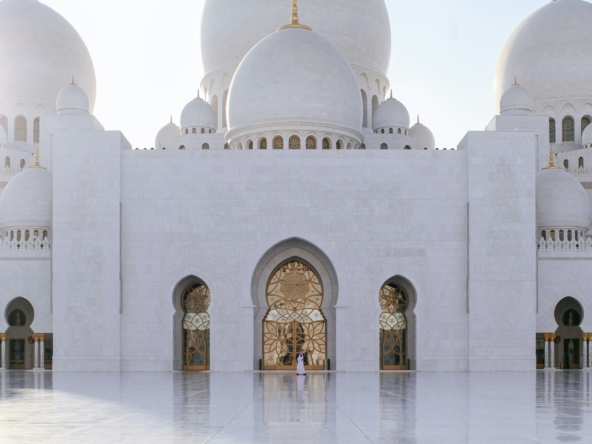Dubai, one of the most dynamic cities in the Middle East, is known for its booming real estate market. In recent years, the rental market in Dubai has been particularly influential, attracting both investors and tenants from across the globe. The city’s strategic location, high standard of living, and progressive development policies have positioned it as a hub for business, tourism, and residential living. However, despite the abundant opportunities, the rental market faces several challenges. This article explores the opportunities and challenges within the Dubai rental market.
Opportunities in Dubai’s Rental Market
- Strong Demand from Expats Dubai has a diverse expat community, with people coming from all over the world for work, education, and business. This creates a consistent demand for rental properties, especially in prime areas like Downtown Dubai, Dubai Marina, and Jumeirah Beach Residences. The city’s growing popularity among professionals and families ensures that landlords can benefit from a steady stream of tenants.
- Strategic Location and World-Class Infrastructure Dubai’s world-class infrastructure and strategic location as a global business hub make it an attractive destination for both short-term and long-term tenants. Proximity to international airports, business districts, entertainment hubs, and luxury shopping malls makes Dubai a desirable place for individuals and companies seeking rental spaces for residential and commercial purposes.
- Variety of Rental Options Dubai offers a wide range of rental options catering to various income levels and preferences. From luxurious villas and high-rise apartments to affordable studios and shared accommodation, there is something for everyone. This variety allows property owners to tap into different market segments, enhancing their potential for income.
- Government Support for Real Estate The government of Dubai has introduced various initiatives to support and encourage investment in the real estate sector. Measures such as long-term visas for investors, simplified regulations, and initiatives aimed at improving the overall business climate have made Dubai even more attractive to potential investors and renters.
- Increasing Tourism and Short-Term Rentals With a steady increase in global tourism, short-term rentals via platforms like Airbnb have become a lucrative option for property owners in Dubai. The city’s many tourist attractions, such as the Burj Khalifa, Palm Jumeirah, and Dubai Mall, make it a popular destination for visitors who prefer the comfort and flexibility of private rentals rather than hotels.
Challenges in Dubai’s Rental Market
- Over-Supply of Properties One of the primary challenges facing the rental market in Dubai is the oversupply of properties. Over the years, Dubai’s real estate developers have built large-scale residential complexes to meet the demand. However, the rapid pace of development has led to an oversupply, which has put downward pressure on rental prices. This surplus in inventory has created increased competition for tenants, especially in less desirable locations.
- Fluctuating Rental Prices While Dubai offers many opportunities for landlords, rental prices can be volatile. External factors such as changes in the global economy, oil prices, and government regulations can influence rental demand and supply. Additionally, the COVID-19 pandemic and its aftermath led to price reductions and altered market dynamics, highlighting the uncertainty of rental prices in the city.
- Regulatory Challenges Although Dubai’s real estate sector is generally well-regulated, there are still challenges for both landlords and tenants. Rental laws can be complex and may not always favor one party over the other. For instance, rent increases are regulated by the Dubai Land Department, and landlords must comply with specific rules that may limit their ability to adjust rents freely. Additionally, disputes between landlords and tenants over property maintenance, security deposits, and contract terms remain common challenges.
- Competition from Alternative Accommodation The rise of short-term rental platforms like Airbnb has led to increased competition between long-term and short-term rentals. Many landlords are opting for the short-term rental model, where they can earn higher returns, especially in tourist-heavy areas. This shift could reduce the availability of long-term rental properties, thereby making it more difficult for individuals or families seeking stable housing.
- Economic Uncertainty Dubai’s rental market can be affected by broader economic conditions, both locally and internationally. Economic slowdowns, fluctuating oil prices, or geopolitical instability can influence job security and the spending power of tenants. During such times, tenants may opt for more affordable options, leading to increased vacancy rates and a potential decrease in rental income for landlords.
Dubai’s rental market offers many opportunities, driven by its growing expatriate population, strategic location, and varied property offerings. The government’s support for the real estate sector, along with the city’s position as a global business hub, ensures continued demand for rental properties. However, challenges such as an oversupply of properties, fluctuating rental prices, regulatory complexity, and competition from alternative accommodation models need to be addressed.
For property investors and landlords, understanding the local market conditions, keeping up with regulatory changes, and being flexible in pricing and property management can help mitigate risks and maximize returns. Tenants, on the other hand, should be mindful of price fluctuations and explore different areas to find the best rental options that fit their needs and budget.
In summary, while Dubai presents numerous opportunities for both landlords and tenants, the market’s volatility and unique challenges require a strategic approach to succeed in this competitive environment.



